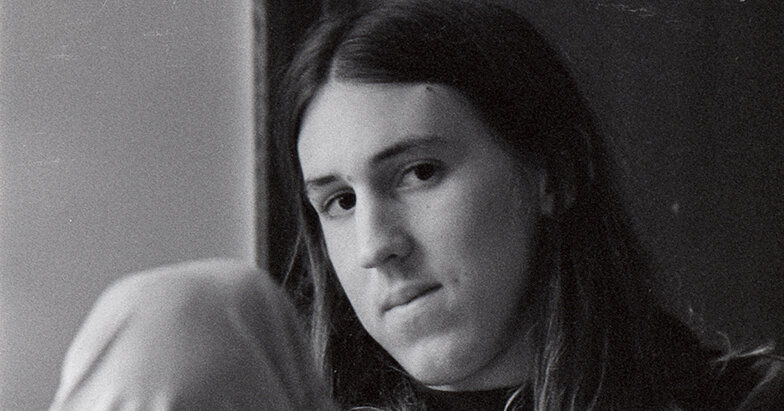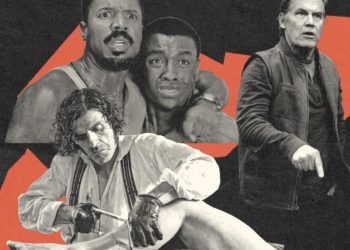THE UNCOOL: A Memoir, by Cameron Crowe
One of the greatest tricks cool people play on the rest of us is convincing us in their memoirs that they were and are profoundly uncool. Cameron Crowe comes right out with the pandering on his book’s cover: “The Uncool: A Memoir.”
The title refers to a scene in “Almost Famous” (2000), the tender film he wrote and directed. The headstrong rock critic Lester Bangs (Philip Seymour Hoffman) is consoling the Crowe-like hero, a floppy-haired teenage rock journalist, over the telephone at a low moment. Bangs says, “The only true currency in this bankrupt world is what you share with someone else when you’re uncool.” It’s a good line. Call me anytime, Bangs adds: “I’m always home. I’m uncool.”
Never mind whether Lester Bangs was plausibly uncool. How about Crowe? Here’s a man who spent his adolescence in the 1970s careening around the United States for Rolling Stone magazine, a boy wonder in the intimate and extended company of David Bowie, Led Zeppelin, Gram Parsons, the Allman Brothers, Fleetwood Mac, Emmylou Harris, Kris Kristofferson, the Eagles, Todd Rundgren and Yes, about whom he was writing profiles and cover stories.
Occasionally, he’d fly home to see his mother, check out high school for a day or two, then blearily type up his road memories and interview notes. Sounds uncool to me.
The second act of Crowe’s career began when, in his early 20s, he went undercover for a year, posing as a high school student in San Diego, and wrote the experience up in a book called “Fast Times at Ridgemont High.” Crowe and the director Amy Heckerling turned it into a wide-awake 1982 movie that provided rocket fuel for Sean Penn, who played the perpetually stoned surfer Jeff Spicoli.
Crowe, who burned out young as a journalist, pivoted to film. He wrote and directed “Say Anything” (1989), with John Cusack, Ione Skye and a famous boombox; “Singles” (1992), a romantic early look at the Seattle grunge scene; and “Jerry Maguire” (1996), with Tom Cruise and Renée Zellweger, before winning an Oscar for his “Almost Famous” screenplay. All this while married to Nancy Wilson, the guitarist in Heart. No sane person would trade their allotment of experience for this man’s. Omnidirectionally uncool.
When you read Crowe’s memoir, though, you begin to see things from his unhip point of view. He had no interest in drink and drugs while on the road, though Gregg Allman tried to hook him up with a speedball. He seems to have mostly abstained from sex, too, though there’s something about his adoration in the presence of his rock heroes that makes it seem he’s losing his virginity every few pages.
His editors at Rolling Stone thought he was uncool, increasingly as time went on, because the acolyte in him overrode the journalist. He Forrest Gumped along. Bands liked having Crowe around because he was adorable and a bit servile; he’d often leave out the bits they wanted left out.
This was driven home by Joni Mitchell. After Crowe agreed to show her his profile before he sent it to Rolling Stone, she signed one of her paintings to him: “Thanks for the cooperation, Joni Mitchell.” Crowe, who is currently at work on a Mitchell biopic, writes: “I knew instantly I could never put it where a fellow journalist might see it.” He also writes: “What might have been considered criminal to some journalists was a key to her comfort.”
Crowe thought rock writers were snobs. He moved in with Glenn Frey and Don Henley of the Eagles while profiling them, for example, and he was in the room when they wrote “One of These Nights” and “Lyin’ Eyes.” It bugged him to see them put down:
A collection of rock writers at a party would challenge each other on their musical taste, each one going further and further into the world of the obscure until they’d collectively decided that “Self Portrait” was Bob Dylan’s greatest album and the Eagles barely deserved a record contract.
He especially liked Frey, because his message to the world seemed to be: “Lead with your optimism.” This was Crowe’s mother’s ethos, as well, and it chimed with his own. It’s a worldview that has worked for him in his best movies, though he’s also made gooey flops. The world needs its Paul McCartneys as much as it needs its Lou Reeds. It makes sense that Reed only sneered when he met Crowe.
“The Uncool” is filled with observations about how life can feel like a Rundgren song, “part ache, part exhilaration.” How a song can arrive “just as you need it, and that arrival memory remains for the rest of time.” And how on some nights “music might spin your life around, give you new passion, point you in an unexpected direction.”
The crucial thing to know about this book is that is overlaps almost exactly with the story Crowe tells in “Almost Famous.” If you remember the phrases “It’s all happening” and “Don’t take drugs,” or the young woman — a “Band-Aid” in the movie’s argot — who is offered for a case of Heineken, or the rock star who briefly kills an important story, or Crowe’s flight-attendant sister, or the group sex scene that seems like a series of flickering veils, or the L.A. hotel known as the Riot House, or Lester Bangs acting out in a glassed-in first-floor radio studio, it’s all here and more.
The book reads like a novelization of the movie, so much so that it makes you consider the nature of memory. I’m not suggesting Crowe is making things up in this memoir. I’m merely suggesting that the stories he wrote for the movie may have been so reverberant that they began to subtly bleed into his own.
The secret to the movie, one that most people miss, Crowe says, is the empty chair at the family’s dining-room table. It belonged to Crowe’s older sister, Cathy, who was troubled from birth and died by suicide at 19. This detail reminds you how relatively sanitized this book otherwise is. There is little that’s grainy or truly revelatory about his own life and loves. The book ends before his directing career has begun, thus leaving room for a sequel. Everything is a bit gauzy, soft-core.
God help me, I read this book quickly and enjoyed it anyway: The backstage details alone keep this kite afloat. It got to me in the same way “Almost Famous” always gets to me, despite the way that movie sets off my entire bank of incoming sentimentality detectors. If you can watch the “Tiny Dancer” scene without blinking back a tear, you’re a stronger person than me. I suspect this book will find a large audience.
When he was young, Crowe writes, his mother tasked him with creating a handmade sign to use on long car trips. On one side it read, “THANK YOU.” On the other side, “YOU BASTARD.” She’d tell him which side to press to the glass.
“The Uncool” is the “THANK YOU” side, from first to last.
THE UNCOOL: A Memoir | By Cameron Crowe | Avid Reader Press | 322 pp. | $35
Dwight Garner has been a book critic for The Times since 2008, and before that was an editor at the Book Review for a decade.
The post Who Is Cameron Crowe Kidding With the Title of His Memoir? appeared first on New York Times.




